Get ready for the most difficult science test ever. We’ve put up a list of 100 science quiz questions with answers in this post to test your interest and knowledge. Whether you are a student studying for a test, a teacher trying to make your own material entertaining for students, or just a scientific enthusiast, these questions cover topics including physics, biology, chemistry, earth science, and space science.
Utilize this list to stay focused and sound off for tests, contests, or simply to boast (be ready to show off your trivia talent!). Now, without any further ado, lets jump into the fancy land of science and see how much of it you know!
Test Your Knowledge: General Science Quiz with MCQs
Try your knowledge with this fascinating science quiz! Comprising many multiple-choice questions, this test covers a broad spectrum of general scientific subjects. Test yourself to find out how scientifically literate you are. This quiz is ideal for evaluating your knowledge and acquiring fresh facts regardless of your level of interest in science or your degree of education. About ready to begin? Let’s start with the science quiz.
Biology
1. Plague is caused by
a) Virus
b) Fungi
c) Bacteria
d) Protozoa
ANSWER
c) Bacteria
2. Who is the Father of Biology?
a) Darwin
b) Aristotle
c) Mendel
d) Lamarck
ANSWER
b) Aristotle
3. What is the outer portion of a stem or root called?
a) Cortex
b) Pericycle
c) Epidermis
d) Xylem
ANSWER
b) Pericycle
4. What is the yellow powder that contains the secret of plant life?
a) Nectar
b) Pollen
c) Resin
d) Chlorophyll
ANSWER
b) Pollen
5. What is the organ produced bile?
a) Gallbladder
b) Liver
c) Pancreas
d) Stomach
ANSWER
b) Liver
6. Which vitamin helps the body absorb calcium?
a) Vitamin C
b) Vitamin D
c) Vitamin A
d) Vitamin B
ANSWER
b) Vitamin D
7. The term pisciculture is related with
a) Bird farming
b) Fish Farming
c) Dairy farming
d) Poultry farming
ANSWER
b) Fish Farming
8. Carrier of Malaria disease is
a) Culex Mosquito
b) Anopheles Mosquito
c) Aedes Mosquito
d) Housefly
ANSWER
b) Anopheles Mosquito
9. Name the organ responsible for purification of blood
a) Lungs
b) Kidney
c) Liver
d) Heart
ANSWER
b) Kidney
10. Heart attack is caused due to
a) High sugar levels
b) Cholesterol
c) Low hemoglobin
d) Deficiency of calcium
ANSWER
b) Cholesterol
11. Light energy is converted into chemical energy during the process of
a) Respiration
b) Photosynthesis
c) Fermentation
d) Transpiration
ANSWER
b) Photosynthesis
12. Which of the following organisms breathes from skin?
a) Frog
b) Earthworm
c) Fish
d) Snail
ANSWER
b) Earthworm
Physics
13. Who is the Father of modern Physics?
a) Galileo Galilei
b) Albert Einstein
c) Sir Isaac Newton
d) Niels Bohr
ANSWER
c) Sir Isaac Newton
14. Hydraulic Brakes work on which principle?
a) Archimedes’ Principle
b) Pascal’s Principle
c) Bernoulli’s Principle
d) Newton’s Third Law
ANSWER
b) Pascal’s Principle
15. The ideal fluid which is a hypothetical fluid should contain _______?
a) Zero Density
b) Zero Viscosity & Zero Compressibility
c) Maximum Surface Tension
d) Zero Cohesion
ANSWER
b) Zero Viscosity & Zero Compressibility
16. A vehicle moving on a circular path experiences ________?
a) Centrifugal force
b) Gravitational force
c) Centripetal force
d) Frictional force
ANSWER
c) Centripetal force
17. If a moving body turns its speed to 1.5 times, what will be the impact on its kinetic energy?
a) Will become 3 times
b) Will become 2.25 times
c) Will remain the same
d) Will become 1.5 times
ANSWER
b) Will become 2.25 times
18. The force between charged particles is called as:
a) Gravitational Force
b) Magnetic Force
c) Electromagnetic Force
d) Nuclear Force
ANSWER
c) Electromagnetic Force
19. What is the product of the mass of the body and its velocity called as?
a) Inertia
b) Linear Momentum
c) Acceleration
d) Force
ANSWER
b) Linear Momentum
20. What is the dot product of two perpendicular vectors?
a) 1
b) Infinity
c) 0
d) -1
ANSWER
c) 0
21. What is the unit of intensity of Gravitational field in the c.g.s system?
a) dyne cm⁻¹
b) dyne g⁻¹
c) g cm²
d) g cm⁻²
ANSWER
b) dyne g⁻¹
22. A laser beam is always
a) Convergent beam
b) Parallel beam
c) Divergent beam
d) Oscillating beam
ANSWER
c) Divergent beam
23. A liquid drop tends to assume a spherical shape because of
a) Gravity
b) Surface tension
c) Viscosity
d) Adhesion
ANSWER
b) Surface tension
24. A steam engine converts
a) Mechanical energy into heat energy
b) Chemical energy into mechanical energy
c) Heat energy into mechanical energy
d) Heat energy into electrical energy
ANSWER
c) Heat energy into mechanical energy
Chemistry
25. Which of the following is not a non-metallic mineral?
a) Limestone
b) Bauxite
c) Graphite
d) Sulphur
ANSWER
b) Bauxite
26. The chemical name of quick lime is
a) Calcium Carbonate
b) Calcium Oxide
c) Calcium Hydroxide
d) Calcium Sulphate
ANSWER
b) Calcium Oxide
27. The first transgenic crop is
a) Cotton
b) Tobacco
c) Wheat
d) Corn
ANSWER
b) Tobacco
28. The Modern periodic table has:
a) Seven periods and sixteen groups
b) Seven periods and eighteen groups
c) Eight periods and eighteen groups
d) Six periods and eighteen groups
ANSWER
b) Seven periods and eighteen groups
29. The most abundant element is
a) Hydrogen
b) Oxygen
c) Carbon
d) Nitrogen
ANSWER
b) Oxygen
30. The pollutant responsible for ozone holes is
a) Carbon Dioxide
b) CFC
c) Methane
d) Sulphur Dioxide
ANSWER
b) CFC
31. Metal stored in Kerosene oil
a) Magnesium
b) Sodium
c) Potassium
d) Lithium
ANSWER
b) Sodium
32. How many electrons can the s-orbital accommodate?
a) 4
b) 6
c) 2
d) 8
ANSWER
c) 2
33. Who among the following conceived the first recognizable periodic table of chemical elements?
a) Henry Moseley
b) Dmitri Mendeleev
c) John Newlands
d) Antoine Lavoisier
ANSWER
b) Dmitri Mendeleev
34. Nobel oil is the name of which of the following explosives?
a) TNT
b) RDX
c) TNG
d) PETN
ANSWER
c) TNG
35. Stainless steel usually contains about 14%
a) Nickel
b) Chromium
c) Iron
d) Carbon
ANSWER
b) Chromium
36. Carbon footprint can be reduced by:
a) Burning fossil fuels
b) Recycling waste materials
c) Using more plastic
d) Increasing deforestation
ANSWER
b) Recycling waste materials
37. Which of the following gases is known as “Laughing Gas”?
a) Ammonia
b) Nitrous Oxide
c) Carbon Monoxide
d) Sulphur Dioxide
ANSWER
b) Nitrous Oxide
Ecology
38. The number of trophic levels in a food chain is mainly determined by the
a) Amount of biomass
b) Number of producers
c) Deficiency of energy transfer between levels
d) Predator-prey ratio
ANSWER
c) Deficiency of energy transfer between levels
39. Which one of the following characteristics of a parasite is not a means of ensuring continuity of species of the parasite?
a) High reproductive rate
b) Degeneration of redundant body structures
c) Ability to evade host immunity
d) High adaptability to hosts
ANSWER
b) Degeneration of redundant body structures
40. A good pesticide is one which
a) Is highly toxic for all organisms
b) Easily transforms to non-toxic forms
c) Accumulates in the food chain
d) Requires frequent application
ANSWER
b) Easily transforms to non-toxic forms
41. Ecology deals with the study of
a) Chemistry of soil
b) Evolution of species
c) Reciprocal relationship between living and non-living components
d) Structure of Earth’s crust
ANSWER
c) Reciprocal relationship between living and non-living components
42. Energy flow in ecosystem is
a) Cyclical
b) Unidirectional
c) Multidirectional
d) Reversible
ANSWER
b) Unidirectional
43. The source of energy in an ecosystem is
a) Sunlight
b) DNA
c) Sunlight
d) Chlorophyll
ANSWER
c) Sunlight
44. The final stable community in an ecological succession is called the
a) Pioneer community
b) Climax community
c) Transient community
d) Seral stage
ANSWER
b) Climax community
45. Conservation within the natural habitat is
a) Ex-situ conservation
b) In-situ conservation
c) Ecological conservation
d) Genetic conservation
ANSWER
b) In-situ conservation
46. Conservation outside the natural habitat is
a) In-situ conservation
b) Ex-situ conservation
c) Community conservation
d) Species-based conservation
ANSWER
b) Ex-situ conservation
47. What is the animal symbol of W.W.F (World Wildlife Fund)?
a) Polar Bear
b) Giant Panda
c) Tiger
d) Dolphin
ANSWER
b) Giant Panda
48. Plants are also regarded as
a) Fauna
b) Flora
c) Ecosystem
d) Producers
ANSWER
b) Flora
49. Trophic levels are formed by
a) Producers only
b) Consumers only
c) Organisms linked in food chain
d) Decomposers only
ANSWER
c) Organisms linked in food chain
50. Soil conservation is the process where
a) Soil is transformed into clay
b) Soil is protected against loss
c) Soil nutrients are removed
d) Soil becomes saline
ANSWER
b) Soil is protected against loss
Elements,Metal and Compounds
51. Which of the following is the lightest metal?
a) Magnesium
b) Lithium
c) Sodium
d) Aluminium
ANSWER
b) Lithium
52. The most important ore of aluminium is
a) Hematite
b) Magnetite
c) Bauxite
d) Galena
ANSWER
c) Bauxite
53. The element present in the largest amount in rocks and minerals is
a) Oxygen
b) Iron
c) Silicon
d) Aluminium
ANSWER
c) Silicon
54. Air is a/an
a) Compound
b) Mixture
c) Element
d) Molecule
ANSWER
b) Mixture
55. Which of the following is an element?
a) Salt
b) Diamond
c) Water
d) Sand
ANSWER
b) Diamond
56. The filament of an electric bulb is made of
a) Copper
b) Tungsten
c) Aluminum
d) Nickel
ANSWER
b) Tungsten
57. Heavy water is
a) H₂O₂
b) Deuterium oxide
c) Tritium oxide
d) Calcium oxide
ANSWER
b) Deuterium oxide
58. Which of the following is a compound?
a) Silica
b) Graphite
c) Diamond
d) Sulphur
ANSWER
a) Silica
59. Which of the following metal was first discovered by man?
a) Iron
b) Copper
c) Gold
d) Silver
ANSWER
b) Copper
60. Which of the following is the lightest gas?
a) Oxygen
b) Hydrogen
c) Helium
d) Neon
ANSWER
b) Hydrogen
61. Titanium is purified by
a) Bayer’s process
b) Van Arkel method
c) Hall-Heroult process
d) Mond process
ANSWER
b) Van Arkel method
62. The hardest substance available on earth?
a) Graphite
b) Diamond
c) Quartz
d) Corundum
ANSWER
b) Diamond
Human System
63. Wisdom teeth normally grow during the age of
a) 10-15 years
b) 17-30 years
c) 30-40 years
d) After 40 years
ANSWER
b) 17-30 years
64. Shortsightedness is due to
a) Weak eye muscles
b) Elongation of eyeballs
c) Flattening of lens
d) Old age
ANSWER
b) Elongation of eyeballs
65. The yellow color of urine is due to the presence of
a) Bilirubin
b) Urochrome
c) Hemoglobin
d) Melanin
ANSWER
b) Urochrome
66. Which of the following is essential for blood clotting?
a) White blood cells
b) Blood platelets
c) Red blood cells
d) Plasma
ANSWER
b) Blood platelets
67. The tooth with three roots is
a) Incisor
b) Canine
c) Molar
d) Premolar
ANSWER
c) Molar
68. A color-blind person has difficulty in distinguishing between which colors
a) Blue and Yellow
b) Green and Red
c) Black and White
d) Orange and Purple
ANSWER
b) Green and Red
69. Ovulation is prevented by using
a) Antibiotics
b) Pills
c) Painkillers
d) Sedatives
ANSWER
b) Pills
70. Pancreas secretes hormones which help in
a) Increasing metabolism
b) Keeping sugar balance in the body
c) Protein synthesis
d) Producing bile
ANSWER
b) Keeping sugar balance in the body
71. Which of the following bone articulations forms the gliding joint?
a) Skull
b) Carpals
c) Hip joint
d) Elbow
ANSWER
b) Carpals
72. Which of the following is not a vestigial organ?
a) Appendix
b) Wisdom teeth
c) Diaphragm
d) Coccyx
ANSWER
c) Diaphragm
73. The smallest cells in the human body are
a) Nerve cells
b) Red blood cells
c) Blood cells
d) White blood cells
ANSWER
c) Blood cells
74. The number of ribs in the human body is
a) 22
b) 24
c) 26
d) 28
ANSWER
b) 24
75. Oxygen is transported to every cell of the human body by
a) White blood cells
b) Plasma
c) Red blood cells
d) Platelets
ANSWER
c) Red blood cells
76. How many bones are there in the human body?
a) 208
b) 204
c) 206
d) 210
ANSWER
c) 206
77. Which muscle is the strongest of all in the human body?
a) Biceps
b) Thigh
c) Jaw
d) Calf
ANSWER
b) Thigh
78. The longest bone in the human body is
a) Spine
b) Thigh bone
c) Arm bone
d) Rib
ANSWER
b) Thigh bone
79. The largest cell in the human body is
a) Egg cell
b) Nerve cell
c) Muscle cell
d) White blood cell
ANSWER
b) Nerve cell
Living Organisms and Plant System
80. The largest living bird is
a) Peacock
b) Ostrich
c) Eagle
d) Albatross
ANSWER
b) Ostrich
81. The mammal which lays eggs is
a) Hedgehog
b) Duck Billed Platypus
c) Echidna
d) Pangolin
ANSWER
b) Duck Billed Platypus
82. Hormones are normally absent in
a) Plants
b) Animals
c) Bacteria
d) Fungi
ANSWER
c) Bacteria
83. The gestation period of cows is
a) 300 days
b) 280 days
c) 240 days
d) 320 days
ANSWER
b) 280 days
84. Taenia solium (Tape worm) lives as a parasite in
a) Blood of man
b) Intestine of man
c) Stomach of man
d) Skin of man
ANSWER
b) Intestine of man
85. Camel uses its humps for
a) Storing water
b) Storing fat
c) Regulating body temperature
d) Generating energy
ANSWER
b) Storing fat
86. Wood is the common name for
a) Primary phloem
b) Secondary xylem
c) Bark
d) Pith
ANSWER
b) Secondary xylem
87. Foxglove plant yields a drug which is stimulant to
a) Brain
b) Heart
c) Lungs
d) Liver
ANSWER
b) Heart
88. Plants that grow on salty soils are
a) Hydrophytes
b) Halophytes
c) Xerophytes
d) Epiphytes
ANSWER
b) Halophytes
89. Veins in leaf are
a) For transpiration
b) For conduction of food
c) For storing water
d) For support
ANSWER
b) For conduction of food
90. Bamboo is a
a) Tree
b) Grass
c) Shrub
d) Herb
ANSWER
b) Grass
Food and Health
91. Cow milk is a rich source of
a) Vitamin D
b) Vitamin A
c) Vitamin C
d) Vitamin E
ANSWER
b) Vitamin A
92. Which of the following is a fungal disease?
a) Malaria
b) Ringworm
c) Typhoid
d) Measles
ANSWER
b) Ringworm
93. Which of the following seeds can benefit a patient of diabetes mellitus by normalizing his blood sugar level?
a) Mustard seeds
b) Fenugreek seeds
c) Sunflower seeds
d) Flax seeds
ANSWER
b) Fenugreek seeds
94. The protein content of the edible portion of an egg is
a) 10.5%
b) 13.30%
c) 15%
d) 8.5%
ANSWER
b) 13.30%
95. Typhoid is a disease of
a) Stomach
b) Intestine
c) Lungs
d) Liver
ANSWER
b) Intestine
96. Which milk contains more fat?
a) Cow
b) Buffalo
c) Reindeer
d) Goat
ANSWER
c) Reindeer
97. Amnesia is related to
a) Loss of appetite
b) Loss of vision
c) Loss of memory
d) Loss of balance
ANSWER
c) Loss of memory
98. Which of the following is a communicable disease?
a) Diabetes
b) Diphtheria
c) Arthritis
d) Asthma
ANSWER
b) Diphtheria
99. The best method for improving the nutrient composition of a diet is by
a) Eating more junk food
b) Combining various foods
c) Drinking only water
d) Avoiding fruits
ANSWER
b) Combining various foods
100. Honey has the largest percentage of
a) Fructose
b) Glucose
c) Sucrose
d) Lactose
ANSWER
b) Glucose
Science Quiz Questions with Answers PDF Download
Seeking a simple approach to have access to excellent Science Quiz Questions with Answers? Get our free PDF loaded with a thorough assortment of science questions spanning physics, chemistry, biology, and space science. Designed for teachers, students, and quiz aficionados, this PDF is your go-to tool for improving your knowledge or getting ready for tests and quizzes. Get your book right now and discover the amazing realm of science!
Conclusion
In conclusion, these science quiz questions cover a wide range of topics, from biology and physics to ecology and the human system. This set of 100 quiz questions will test your knowledge of the natural world whether your interests are in science or merely knowledge testing. Practicing these science quiz questions can help you to better understand fundamental scientific ideas and provide enjoyment along the way. To hone your abilities and be ready for your next trivia challenge, don’t overlook downloading the scientific quiz questions with answers PDF. Keep learning and growing by means of science.
FAQ.
1.What topics are covered in this “Top 100 Science Quiz Questions with Answers to Test Your Knowledge” article ?
Answer: Topics include biology, physics, chemistry, ecology, human systems, living entities, food and health, and more abound on this science exam. It is intended to assess your understanding across several scientific fields.
2.Is it possible to download the quiz questions and answers?
Answer: Definitely yes! The scientific quiz questions and answers can be downloaded in a PDF format. This facilitates your practice anywhere and at any time, therefore strengthening your knowledge.
3.How can this science quiz help me improve my knowledge?
Answer: You can improve your knowledge of important scientific ideas by answering the questions in this science quiz. It’s a great tool for students, workers, and anyone else who wants to try and learn more about science.

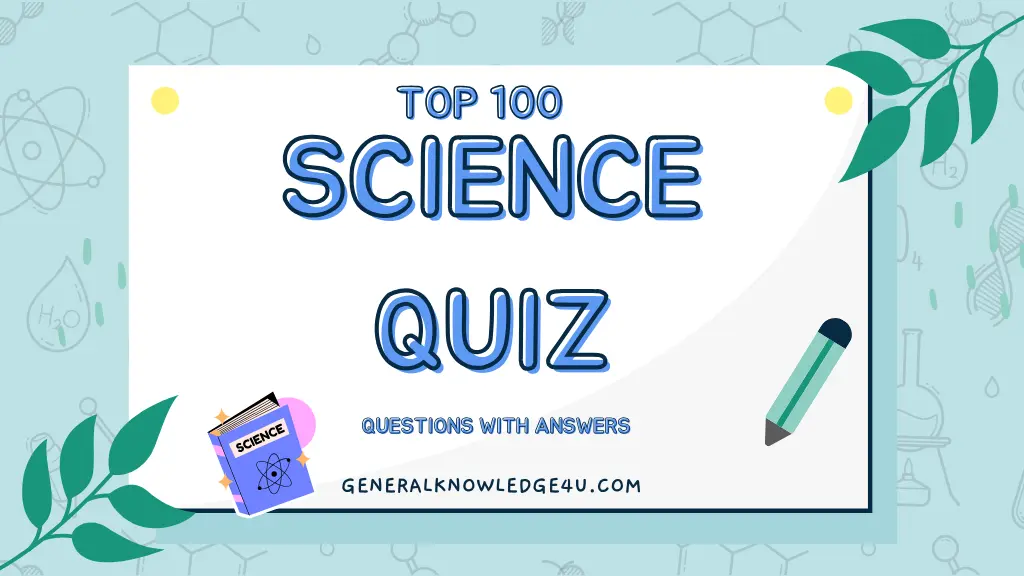







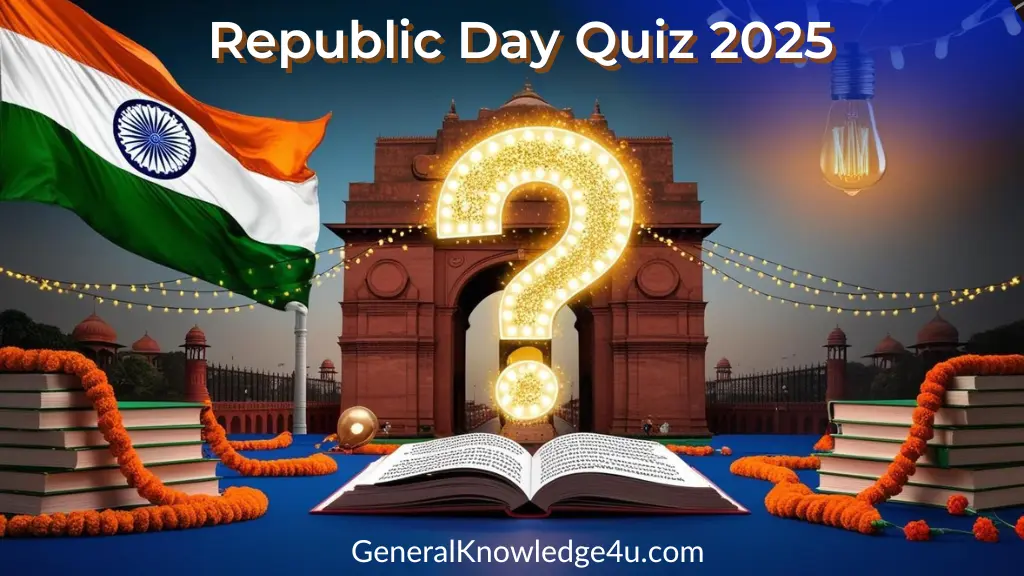



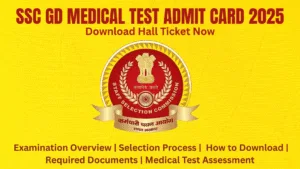


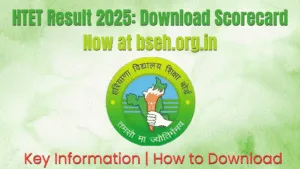


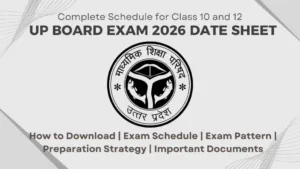



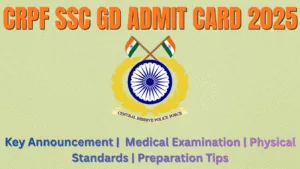
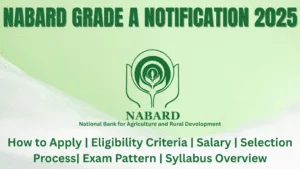




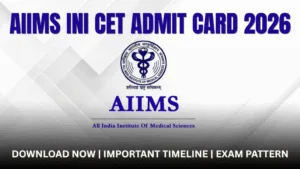
Leave a Comment